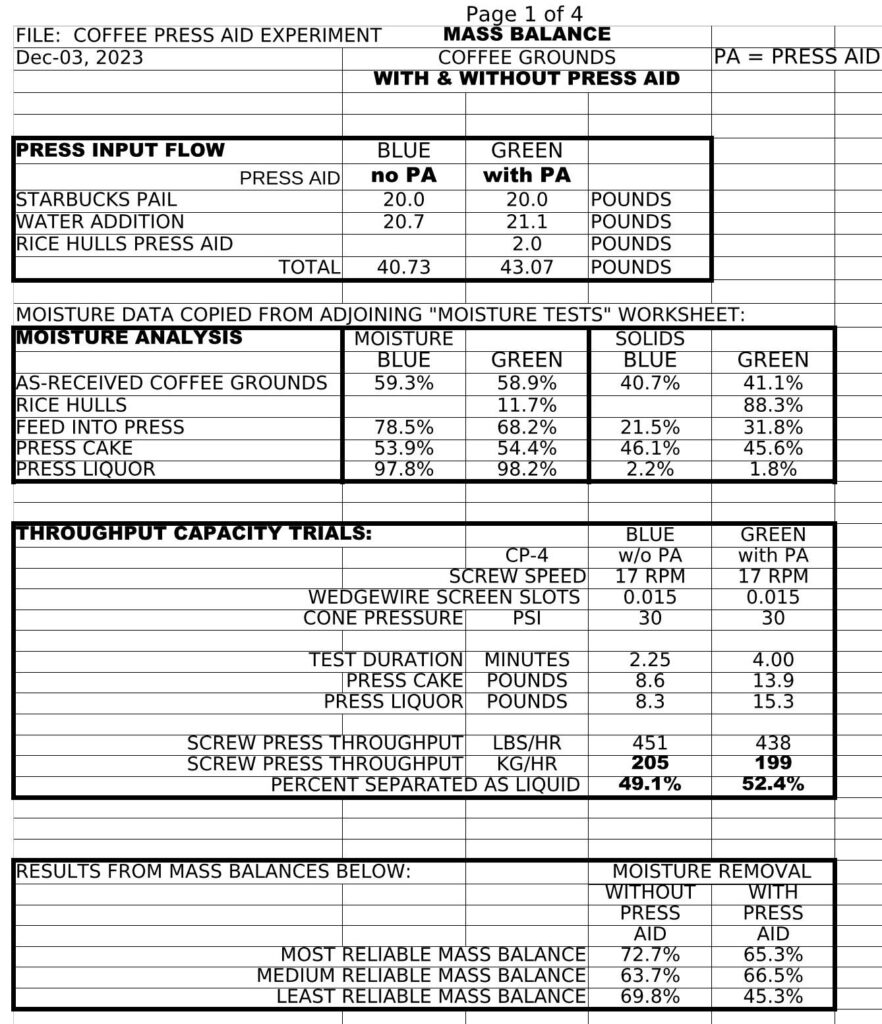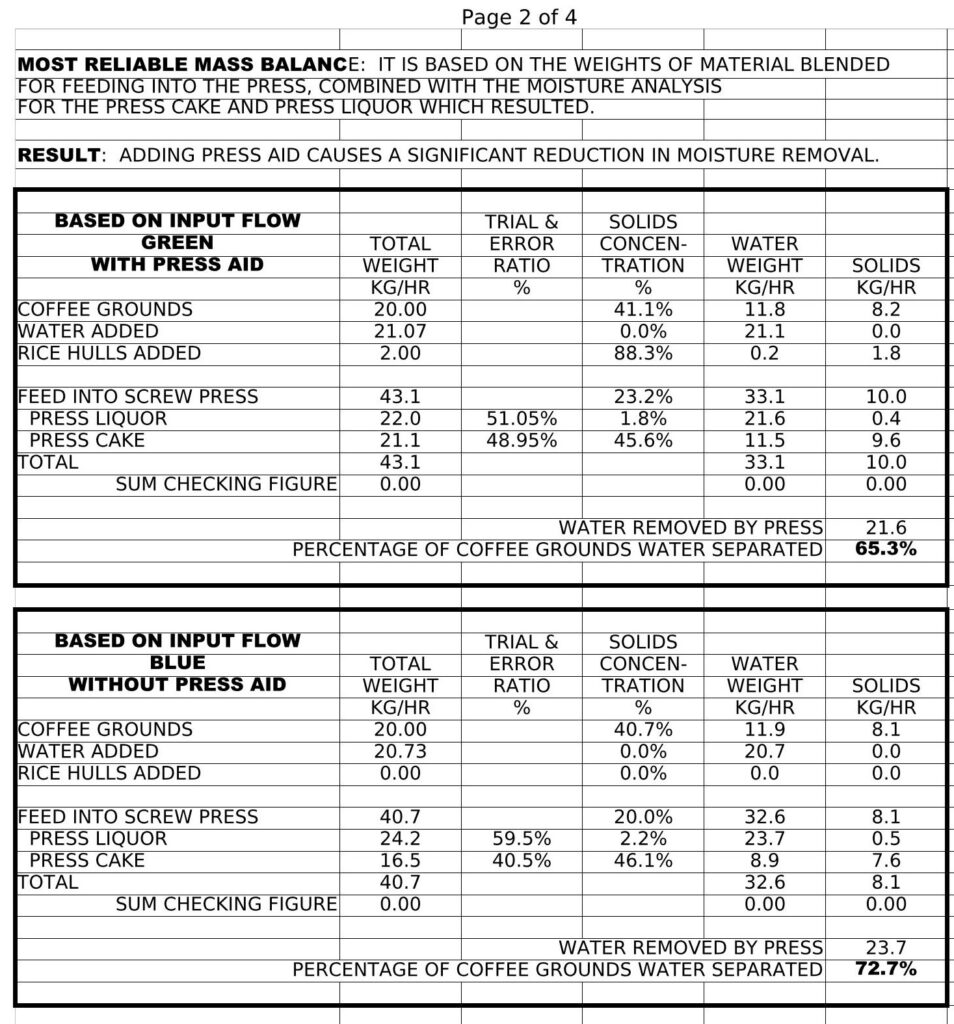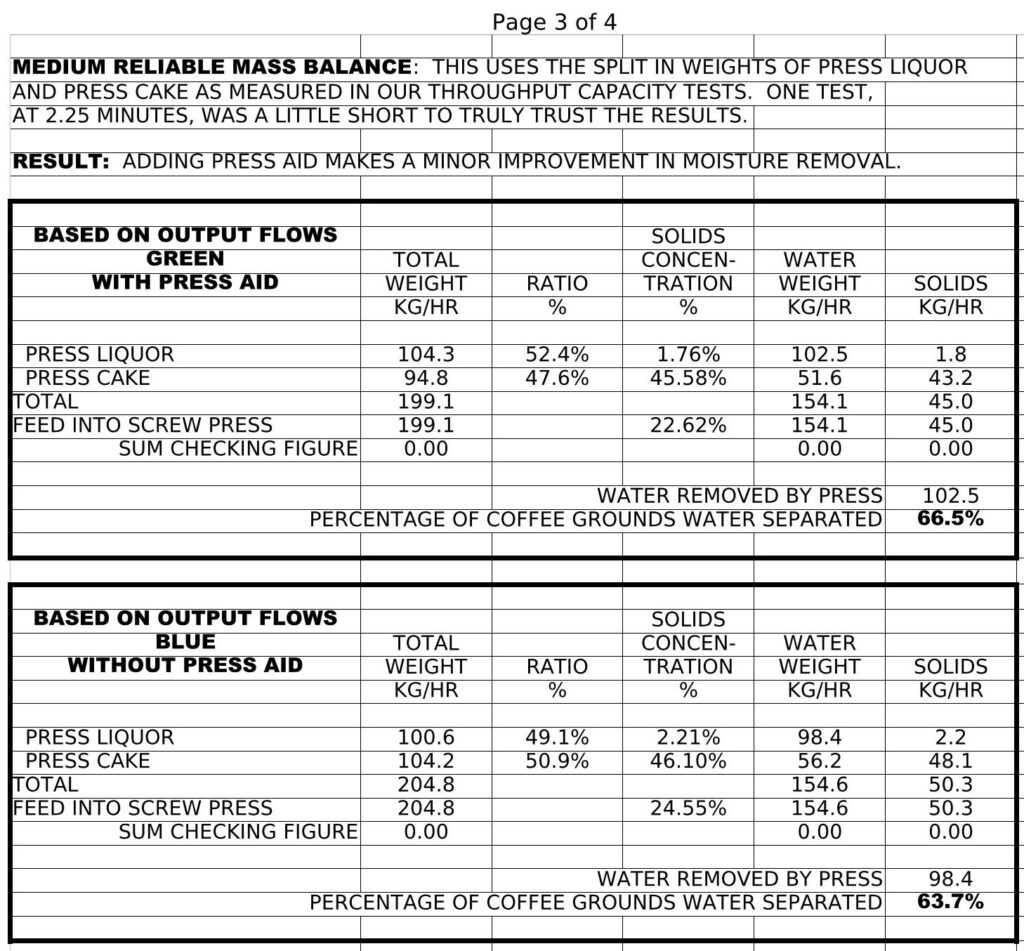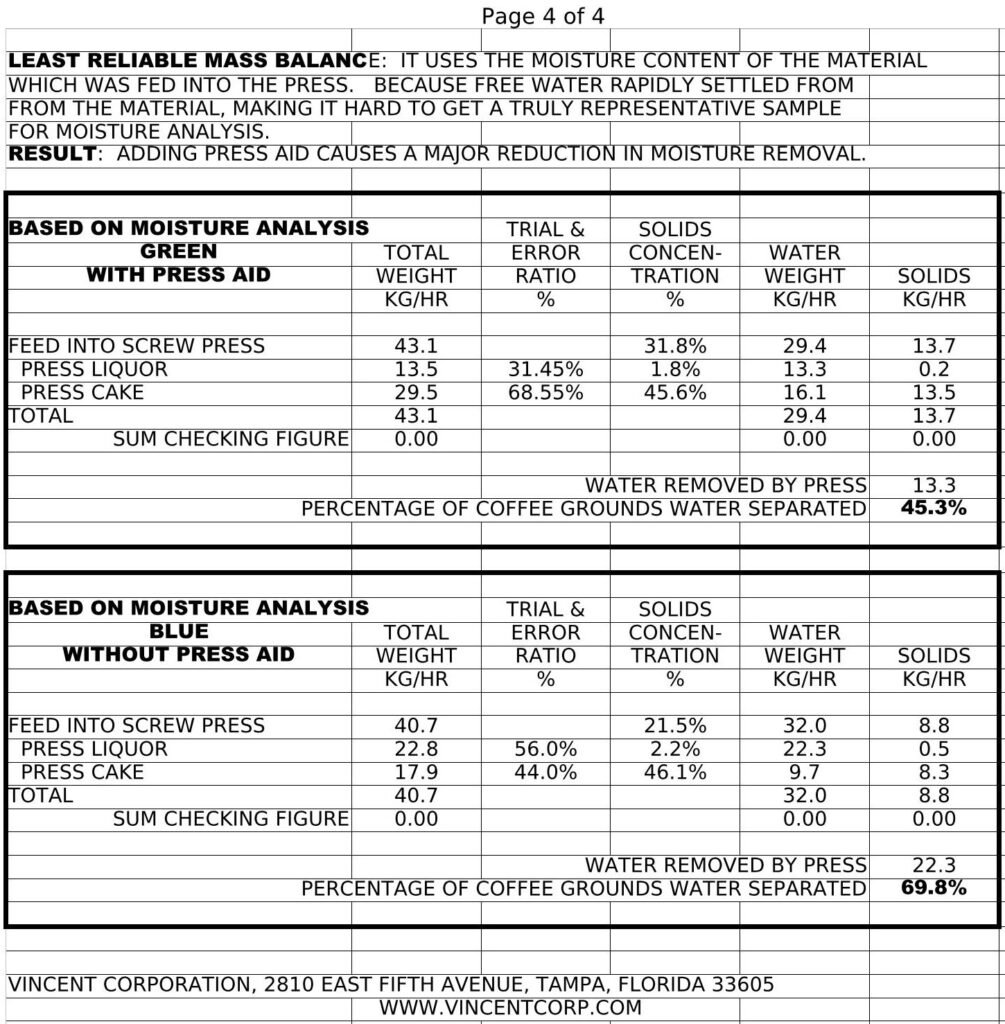January 11, 2024
Soluble (instant) coffee is produced by diffusing roasted coffee beans with hot water. Spent coffee grounds are the waste which results. Almost all of the major soluble coffee producers use this waste as fuel for their boilers.
To make coffee grounds suitable for burning, they are run through a screw press to remove as much water as possible. The press cake produced still contains too much moisture to burn efficiently, so most plants add auxiliary fuel to the pressed grounds. The auxiliary fuels used most commonly are rice hulls and wood chips.
Vincent engineers with this background knowledge were also aware of something seemingly unrelated: producing fruit juice with a screw press normally requires addition of press aid, and common press aids are rice hulls and ground wood fiber.
Thus a hypothesis developed that the dewatering step with coffee grounds could be improved by mixing press aid with the grounds, ahead of the press. And the press aids to be used could be the very same auxiliary fuels now in use.
To test this hypothesis samples of press cake we given to us by Starbucks in Augusta, Georgia, and rice hulls came from Iguaçu Coffee in Vietnam.
Trials were run, pressing samples with and without press aid. A video of this testing is available on the Vincent YouTube channel:
COFFEE GROUNDS WITH PRESS AID
Video link: https://youtu.be/15Q9zx4GrG8
The results collected were extensive, to the point that mass balances could be made using three different combinations of the data. That is, the data essentially overlapped, so that three different solutions could be calculated.
These three different mass balances are found below.
It is not definitely conclusive, but it looks like the result of adding press aid had the opposite effect from that we had expected. It appears that, while the press aid may have allowed the screw press to remove additional water, the press aid itself absorbed and held even more water.
Oh, well. We tried.




ISSUE #353
